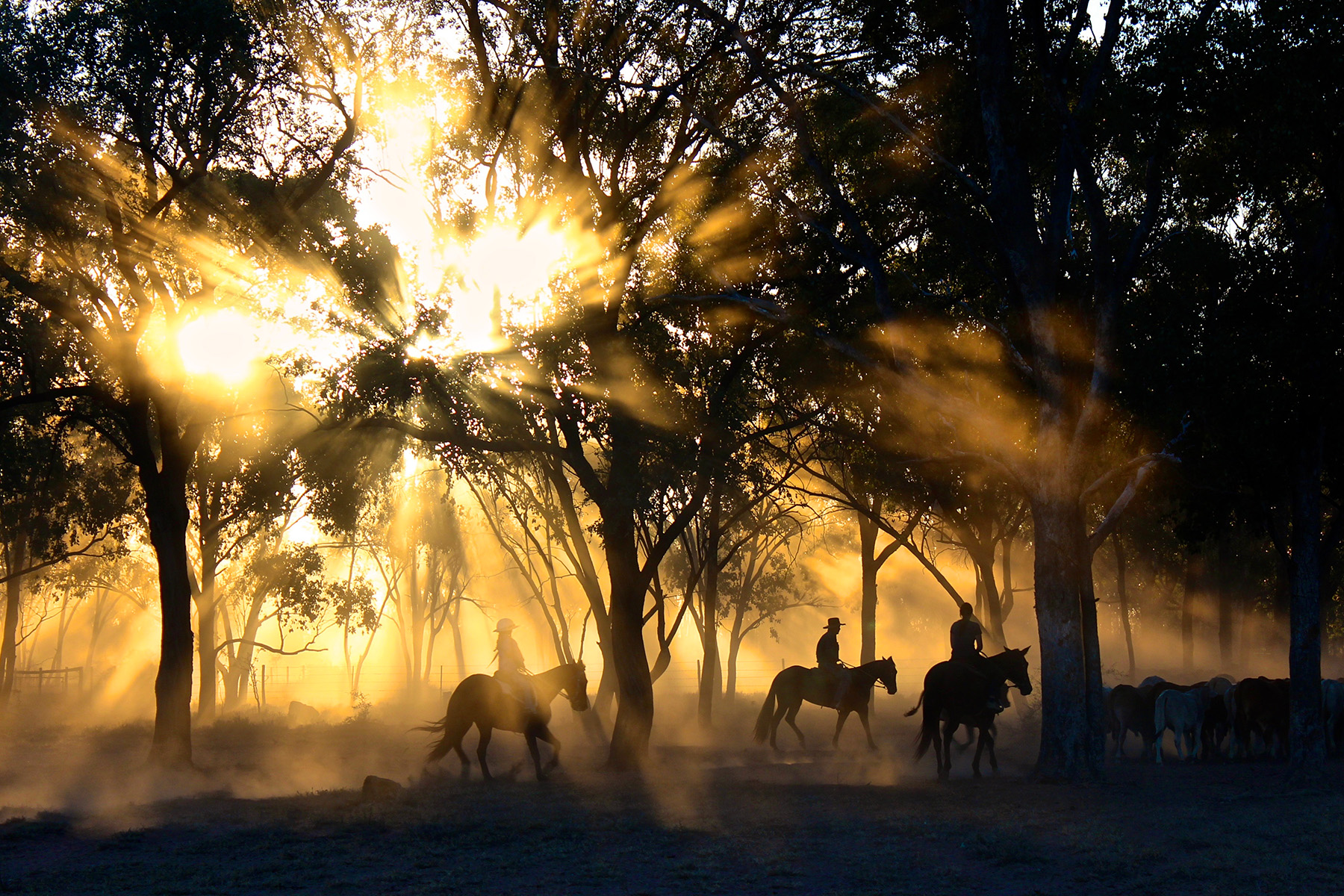
ATHRA's 13 Golden Rules
The Australian Trail Horse Riders Association has developed a set of 13 Golden Rules for the environmentally aware horse rider.
- Always be observant and avoid unduly disturbing unstable and erosion-prone soils.
- Avoid allowing horses to denude areas of vegetation, especially during stays of more than one night in one location. Be ready to relocate picket lines and portable yards whenever necessary.
- Rather than risk damage to fragile creeks, streams and riverbanks, select firm, stony crossings and use bridges wherever possible as this will help ensure good water quality and limit erosion.
- Carry and use canvas or collapsible buckets and/or a pump hose, where possible, to water and wash horses, well away from watercourses, thereby further reducing the potential for water pollution and bank erosion.
- Only allow your horses to eat weed-free feed at least 24 hours prior to entering bushland areas. Weed-free feed includes clean chaff, pellets and cracked, rolled or steamed grains. Never take meadow hay into bushland areas as it often contains huge quantities of weed seed.
- Undertake some basic weed identification education to help with Point 5, and possibly even assist land managers in quickly identifying and eliminating new outbreaks of problem species.
- Dispose of or disperse manure from overnight campsites as this will help to limit flies breeding.
- Protect trees from ringbarking by picket/night-line ropes and tree protector straps. Incorporate stops in the line to prevent horses from chewing the bark of trees.
- Where possible make picket/night-line length 15 metres or more to reduce concentrated impact.
- Avoid yarding horses not already familiar as paddock mates. This will avoid unnecessary impact should they choose to chase each other around establishing a new social structure or ‘pecking order’.
- Always camp horse well clear of watercourses, at least 30 metres.
- Remove all rubbish from campsites, don’t just bury it and forget it. Where possible, remove litter left by others.
- Always be friendly and civil to other bushland users. You should always take the initiative in avoiding any potentially dangerous situations involving your horses and other bushland users.



